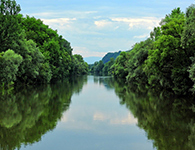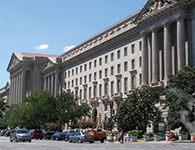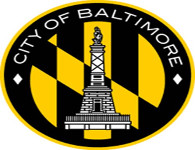NACWA Comments Outline Consequences of Proposed Changes to NPDES Program
 NACWA submitted comments
NACWA submitted comments  last week on EPA’s proposed rulemaking regarding updates to the National Pollutant Discharge Elimination System (NPDES) program, expressing both support for and opposition to various elements of the proposal. NACWA, however, expressed clear opposition to the proposed revisions of 40 CFR 123.44 regarding EPA’s objection to administratively continued permits.
last week on EPA’s proposed rulemaking regarding updates to the National Pollutant Discharge Elimination System (NPDES) program, expressing both support for and opposition to various elements of the proposal. NACWA, however, expressed clear opposition to the proposed revisions of 40 CFR 123.44 regarding EPA’s objection to administratively continued permits.
The bulk of the comment letter stresses the deep concern of NACWA and its members regarding EPA’s intent to designate certain expired NPDES permits that are deemed “environmentally significant” as “proposed permits,” at which point EPA could step in and federalize the permit. NACWA notes the many issues with this approach, including the potential for additional legal liabilities for utilities operating under a federal NPDES permit.
A key theme of the Association’s comments is that the proposed rule’s intent seems at odds with its likely consequences. The proposal touches a variety of components of the program: water quality based permitting, permit fact sheets, and administratively continued permits. Member feedback indicated that while some of the information reporting and electronic reporting elements of the rule are practical, many had concerns with the water quality based permitting language. NACWA’s comments reflect these concerns, stress the importance of dilution and mixing zones, design flows in setting permit limits, and underscore that antidegradation is a policy to be implemented by the water quality standards program, not to be used in a permitting context.
NACWA members that submitted their own comments on the proposal are asked to please email a copy to Brenna Mannion. NACWA will work closely with EPA moving forward as it seeks to finalize this rulemaking.
EPA Announces Public Listening Session for Great Lake CSO Notification
 EPA announced
EPA announced  that it will hold a public listening session on September 14 in Chicago to obtain information for its development of public notification requirements for combined sewer overflows (CSOs) into the Great Lakes. EPA is required under its Fiscal Year (FY) 2016 appropriations bill from Congress to develop public notice requirements for CSOs into the Great Lakes, with implementation mandated by December 2017 (see Advocacy Alert AA 15-20 for more information).
that it will hold a public listening session on September 14 in Chicago to obtain information for its development of public notification requirements for combined sewer overflows (CSOs) into the Great Lakes. EPA is required under its Fiscal Year (FY) 2016 appropriations bill from Congress to develop public notice requirements for CSOs into the Great Lakes, with implementation mandated by December 2017 (see Advocacy Alert AA 15-20 for more information).
NACWA has hosted a call with EPA and Great Lakes utilities to provide input on the notification requirements, and the Association encourages all utilities that have CSOs discharging into the Great Lakes to participate in the public listening session. Please contact Cynthia Finley if you plan to attend the session.
Association Expresses Support for Baltimore Consent Decree
 NACWA submitted comments
NACWA submitted comments  August 8 in support of the Modified Consent Decree negotiated by NACWA Member the City of Baltimore, along with EPA and the State of Maryland. The modified decree, which addresses remaining work to eliminate sanitary sewer overflows (SSOs), allows Baltimore to prioritize projects based on environmental benefit and will eliminate more than 80 percent of remaining SSOs over the next five years.
August 8 in support of the Modified Consent Decree negotiated by NACWA Member the City of Baltimore, along with EPA and the State of Maryland. The modified decree, which addresses remaining work to eliminate sanitary sewer overflows (SSOs), allows Baltimore to prioritize projects based on environmental benefit and will eliminate more than 80 percent of remaining SSOs over the next five years.
Baltimore’s original consent decree, entered in 2002, was one of the first in the country of its kind – an action aimed at the entire sewer system of a major metropolitan area. As work under the original decree progressed, and the parties gained a more detailed understanding of the City’s sewer system, it became clear that the schedule did not reflect an accurate estimate of the work that would be required.
The modified decree employs a two-phased adaptive management approach with all Phase I projects completed by January 1, 2021. This will be followed by 18 months of flow monitoring after which Baltimore will study the results and propose projects for Phase II. All projects under the modified consent decree must be complete by 2030.
NACWA’s comments focus on support of the adaptive management approach, the overarching goal of which is to allow a utility to learn while implementing the decree and course correct based on lessons learned, changed circumstances or priorities, and/or new regulatory mandates that have arisen. By employing adaptive management, the modified consent decree will allow Baltimore to achieve the most beneficial water quality improvements at the lowest cost. This realistic, attainable and sustainable approach will best serve the City and its ratepayers, as well as protect the environment for generations to come.
Baltimore’s modification, as well as other developments in wet weather enforcement, will be included in the 2016 Update to NACWA’s Wet Weather Consent Decrees: Negotiation Strategies to Maximize Flexibility & Environmental Benefit, which will be released during NACWA’s 2016 National Clean Water Law Seminar & Consent Decree Workshop, November 1 – 4, 2016 in Kansas City, Missouri.
For more details on Baltimore’s decree, see the “Member Spotlight” in the June 13 Clean Water Current or contact NACWA’s General Counsel Amanda Waters.
NACWA Brings Toilets Are Not TrashcansMessage to Region 6 Pretreatment Workshop
 NACWA participated in the Region 6 Pretreatment Workshop in Frisco, TX, on August 2, with a presentation by Cynthia Finley, Director of Regulatory Affairs, on the Association’s Toilets Are Not Trashcans campaign. The presentation focused on NACWAs efforts to improve flushability guidelines for flushable wipes, labeling for non-flushable wipes, and public education about what can and cannot be flushed.
NACWA participated in the Region 6 Pretreatment Workshop in Frisco, TX, on August 2, with a presentation by Cynthia Finley, Director of Regulatory Affairs, on the Association’s Toilets Are Not Trashcans campaign. The presentation focused on NACWAs efforts to improve flushability guidelines for flushable wipes, labeling for non-flushable wipes, and public education about what can and cannot be flushed.
The Workshop also included a presentation on the Defend Your Drains campaign of the City of Dallas and the North Central Texas Council of Governments, which educates the public about proper disposal of all types of products, including wipes, paper towels, pharmaceuticals, fats, oils, and greases (FOG).
Meet With Your Members of Congress While They're Home for Summer Recess
 In spite of a very polarized election season, Congress was able to accomplish a handful of tasks before leaving for its summer recess, though not as many as Congressional leaders had hoped. Much awaits Congress’s return in September such as Fiscal Year (FY) 2017 appropriations and possible action on the Water Resources Development Act (WRDA), which makes this summer recess an ideal opportunity for NACWA members to engage their Congressional representatives in important advocacy work.
In spite of a very polarized election season, Congress was able to accomplish a handful of tasks before leaving for its summer recess, though not as many as Congressional leaders had hoped. Much awaits Congress’s return in September such as Fiscal Year (FY) 2017 appropriations and possible action on the Water Resources Development Act (WRDA), which makes this summer recess an ideal opportunity for NACWA members to engage their Congressional representatives in important advocacy work.
Over the next several weeks, NACWA urges its members to reach out to your Congressional delegation and ask for greater federal investment in water and wastewater infrastructure, including higher funding levels for the Clean Water and Drinking Water State Revolving Fund Programs (SRFs) and the Water Infrastructure Financing and Innovation Act (WIFIA) in any final FY 2017 EPA appropriations bill. Also ensure that they maintain the tax exempt status of municipal bonds.
Below are several suggestions for engaging your Congressional delegation over the coming weeks, including:
- Hosting a facility tour for your Representative/Senator and his/her staff;
- Meeting with your Representative/Senator in his/her District Office; and
- Organizing a community forum on water infrastructure issues and inviting your Representative/Senator to attend.
If you need assistance contacting your Congressional Delegation, NACWA is happy to help – the important thing is that you reach out and make your voices heard! ContactKristina Surfus from more information.
CEQ Releases NEPA Climate Review Guidance, Could Impact Federal Utility Funding Programs
 The White House Council on Environmental Quality (CEQ) released its Final Guidance on Consideration of Greenhouse Gas Emissions and the Effects of Climate Change in National Environmental Policy Act (NEPA) Reviews
The White House Council on Environmental Quality (CEQ) released its Final Guidance on Consideration of Greenhouse Gas Emissions and the Effects of Climate Change in National Environmental Policy Act (NEPA) Reviews  , which is intended to help federal agencies, which are required by NEPA to evaluate and disclose the potential environmental effects of their actions, make informed and transparent decisions about their impact on climate change. A CEQ one-pager summarizing the Guidance is also available.
, which is intended to help federal agencies, which are required by NEPA to evaluate and disclose the potential environmental effects of their actions, make informed and transparent decisions about their impact on climate change. A CEQ one-pager summarizing the Guidance is also available.
This Guidance may ultimately trickle down to clean water agencies through various federal programs and projects. For example, NEPA will directly apply to all loans made under the new WIFIA program. States also apply a review process derived from NEPA in administering their SRF programs. The final Guidance results from an Administrative effort that began in 2010 to modernize federal implementation of NEPA.
In short, the final Guidance formally recognizes that Federal agency actions contribute to climate change and seeks to promote informed and transparent decision-making. Agencies are advised to quantify projected greenhouse gas emissions resulting from proposed actions whenever the necessary tools, methods, and data are available and to consider alternatives to mitigate them. It calls on federal agencies to determine the level and extent of quantitative or qualitative analysis that is appropriate and required of their agency to comply with NEPA.
Issuance of this Guidance is another example of how the White House continues to advance administrative actions related to climate change and resiliency in its final year. Related efforts have included the recently-approved National Infrastructure Advisory Council (NIAC) recommendations on Water Sector Resiliency, and efforts by EPA to address climate resiliency in Clean Water Act decision-making. NACWA will continue to monitor and engage on these issues as relevant to our membership.
NYC and Chicago Turn Food into Fuel!
 Clean water utilities are mixing food waste that would otherwise go into landfills into their wastewater digesters to reduce their carbon footprint and help their bottom line. As part of the co-digestion – digestion of multiple wastes in one digester – process, utilities can divert food waste and fats, oils, and grease (FOG) from landfills and public sewer lines. By including the organic material in the co-digestion process, utilities can produce as much as 3 times more methane per unit of volume than when sewage is digested alone. The methane can then be used as a fuel to meet the energy requirements of the utility’s operations. And NACWA members are among the leaders in exploring this exciting technology!
Clean water utilities are mixing food waste that would otherwise go into landfills into their wastewater digesters to reduce their carbon footprint and help their bottom line. As part of the co-digestion – digestion of multiple wastes in one digester – process, utilities can divert food waste and fats, oils, and grease (FOG) from landfills and public sewer lines. By including the organic material in the co-digestion process, utilities can produce as much as 3 times more methane per unit of volume than when sewage is digested alone. The methane can then be used as a fuel to meet the energy requirements of the utility’s operations. And NACWA members are among the leaders in exploring this exciting technology!
As an example, the New York City Department of Environmental Protection (DEP) is utilizing this innovative technology. DEP’s Newtown Creek Wastewater Treatment Plant (WWTP) added food waste to their steel-clad anaerobic digester eggs that turn waste into biofuel. “DEP is actively seeking ways to maximize the recovery of resources from the City’s waste streams and increase production of renewable energy,” said Pamela Elardo, DEP Deputy Commissioner of Bureau of Wastewater Treatment. “We are now processing up to 10 tons of food waste every day at Newtown Creek WWTP with the goal of 250 tons per day in the next three years. We look forward to the completion of the National Grid gas scrubbing facility and other investments at the Newtown plant so we can capitalize on the increases in biogas production as we continue to divert a significant amount of organic waste from landfills.”
By diverting all the food waste away from the regular waste stream and avoiding the truck traffic associated with disposal, landfilling of the material, and stopping the flaring of gas, the city can reduce carbon emissions by 90,000 metric tons per year or the equivalent of removing 19,000 vehicles off the road. The program is a result of a private-public partnership with Waste Management, which provides food waste in a form that is readily injectable into the wastewater sludge.
Co-digestion also plays a large role in the Metropolitan Water Reclamation District of Greater Chicago’s (MWRD) plan to become energy neutral by 2023. Tom Kunetz, Assistant Director of Engineering at the MWRD said “co-digestion is an important element for achieving the MWRD’s overall vision of ‘Recovering Resources, Transforming Water.’ The MWRD has the ability to leverage not only its existing infrastructure, but also its experience and expertise to help the region turn waste products into renewable energy.”
In 2015, the MWRD contracted with Ameresco, Inc. to design and build a digester gas cleaning facility. When completed, the facility will clean digester gas to nearly pure methane, meeting natural gas pipeline quality standards. The finished product is called Renewable Natural Gas, or RNG. The MWRD will contract with a transportation fuel company to purchase the RNG, which will then be used to fuel compressed natural gas vehicles. In order to take advantage of excess capacity in the anaerobic digesters, the MWRD will partner with a liquid organic waste supply chain manager to provide a steady supply of high strength waste and FOG to the digesters as a feedstock for co-digestion. The co-digestion of the wastewater solids and the liquid organic wastes will generate approximately 900 million BTU per day. That’s enough energy to fuel about 20 cars for an entire year.
By increasing their digester capabilities, utilities can power their facilities, reduce emissions, decrease strain on landfills, and also help the federal government reach its first ever national food waste reduction goal to reduce food waste going to landfills by 50 percent.

As the 2016 Summer Olympics kick off with increased media attention on concerns about the water quality in Rio de Janeiro, now is a great time to also reflect on the amazing work done here at home to provide world-class municipal wastewater treatment. Read this week’s edition of The Water Voice to learn why everyone who works in and for municipal clean water in the United States also deserves a gold medal!